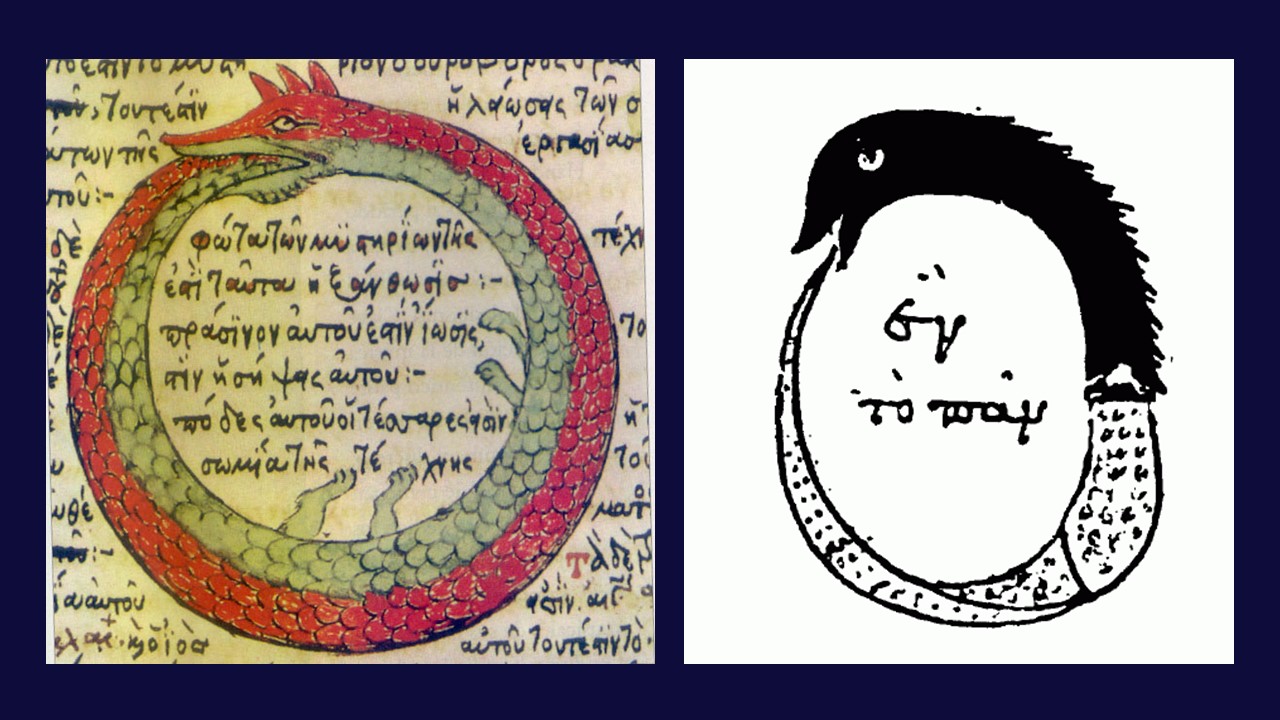.
Civilisations Forget the Taste
of Their Own Tails
To see a friend possessed
By the time’s ideological incantations,
To see a world soon blessed
By mob rule and its dark infatuations;
To glimpse a friend’s black eyes
Gouge out the moment’s question—friend or foe?
To glimpse a world of lies
Fall like a cloak upon a world of woe;
To feel a friend lean forward
And feel contempt for your apostasy,
To feel a world float shoreward
Onto the beach of ideocracy;
To face a friend enraged
And bear the gamma rays of conflict well,
To face a world engaged
In ruin, and still scoop up seeds of hell;
To watch a friend remember
A friendship’s brief extinction through non-crimes,
To watch a world dismember
Communities, as readers dissect rhymes;
Pains seer and the seen
More than life’s mandatory suffering;
Yet don’t our shades seem keen
To crown and guillotine another king?
.
.
James Villanueva is an upcoming writer from Brisbane, Australia. He spends most of his time working at his craft and trying to crack the secrets of literature, since university was of little help there.















I like this poem, which is at times both direct and oblique. A good job was done of preserving formal integrity throughout, which is a sign of good craft. I might have preferred (in stanza 4) “cosmic rays” to “gamma rays” but only because “cosmic” has deeper echoes (though your physics is spot on). There were a few punctuational infelicities and places where the narrative could have been crisper (though specifying these exactly would be tedious), but overall I think that this is a metaphysical poem of the first water.
Thank you for your encouraging comments, and I’ll keep an eye out for what you mention. Also, “cosmic rays” is a gorgeous suggestion since it phonetically interlocks so well with the following word “conflict”, but I used “gamma rays” not to evoke its cosmic sources, but rather to evoke its earthen sources, i.e. nuclear explosions, lightning and radioactive decay; and also its ability to travel through solid objects, particularly the walls of one’s bedroom. Hope that shines a little light on my weird ways.
I love this. I get it and don’t get it. I will read it many more times.
Thank you for your enthusiasm, that’s very generous of you–to the point of being rather touching.
I suspect the poet was writing partially in imitation of Blake’s Auguries of Innocence. At any rate, a fascinating poem. Thank you for it, James Lucas.
Thank you for your comment. Although no poet can escape the influence of Blake’s Auguries, that wasn’t my imitation point. Now I really shouldn’t say this (for why would any self-respecting poet admit influence?–absurd!), but my imitation was of Emily Bronte’s “Last Lines”, its form to be exact.
I very much enjoyed this. I’m sure everyone here has experienced some of what you describe (I know I have). I actually found the poem reminiscent of Kipling (e.g. “If”) both in its use of refrain, its accessibility, and its very clear moral stance.
(BTW, I took “ideocracy” as a literal translation of “force of ideas,” or mobilized ideology, with a subtle double entendre referencing the film “Idiocracy.”)
It reminded me of “If-” too. But less plain-spoken, more oblique in expression.
“To glimpse a world of lies
Fall like a cloak upon a world of woe.”
So perfectly put. And throughout, the interplay between constructed divisions in society and their effect on human lives at the intimate level of friendship. Who hasn’t experienced these things personally, especially in the last few years?
The first two lines of the first stanza give me the most difficulty. The last two lines are difficult for me too, but I wouldn’t change a syllable of them.
The last word: king. History testifies to the fickleness of crowds but hidden in its corners are kingdoms at peace, people rejoicing in their monarchs, kings in love with their people.
That is something I want to remember the taste of.
Again I thank you for your interest, Monika. Perhaps I can help with the first two lines of the first stanza, assuming the problem phrase is “the time’s ideological incantations”. My intent: each (decadent) time/age has a mainstream ideology–whatever the reader thinks that is–and that ideology has a number of set phrases which many people repeat without a second thought. I call these set phrases “incantations”, because their thoughtless repetition bring, or incant, into being a new reality; since what we say thoughtlessly becomes what we think, and what we think becomes how we act, and how we act becomes that new reality.
Sorry, I meant the first two lines of the last stanza.
That’s all right. With those lines, anything I add will probably take away.
I’m very glad you enjoyed it. It thrills me that you thought of Kipling (and I hope I can one day live up to the thought), but the man is a whole lot more cogent, conscious and useful, whereas I feel dragged along by my unconscious.
(Re “ideocracy”, that “force of ideas” fits is very pleasing: thank you. The double entendre is spot on, though, and when I first happened upon it I was chuckling to myself a good deal.)